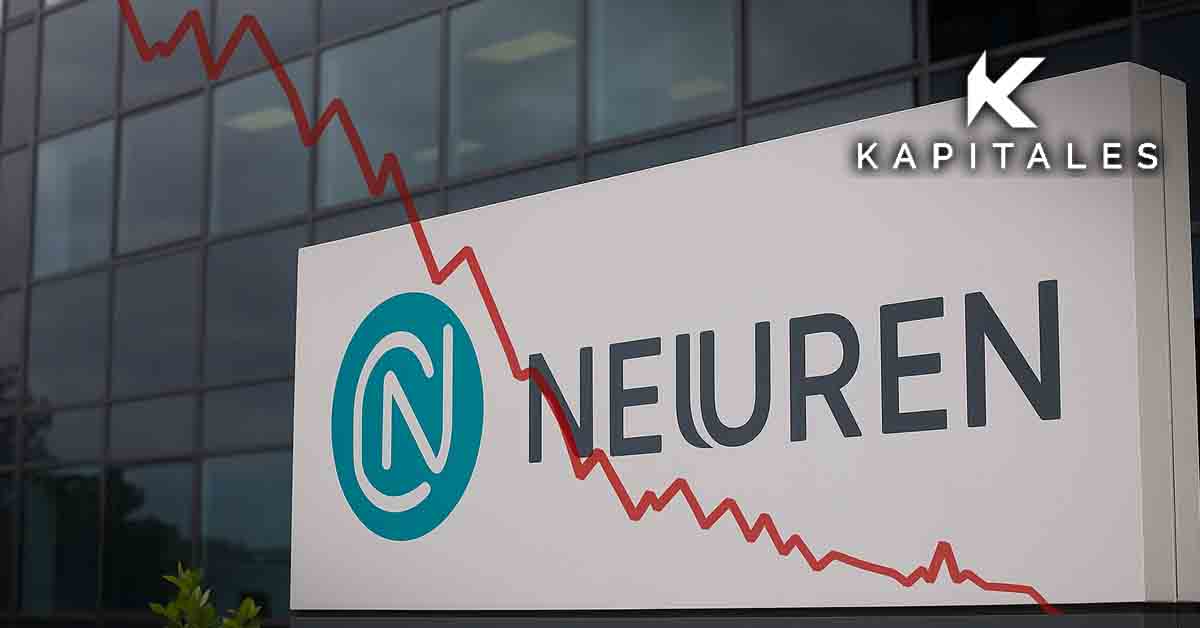
Market Alert: Global Equity Markets Under Pressure Amid Valuation Concerns and Economic Uncertainty
Overview:
Global equity markets are experiencing significant volatility, driven by heightened concerns over stretched valuations, economic uncertainty, and potential interest rate changes. This has resulted in broad-based declines, with Asian markets, particularly Japan and South Korea, seeing sharp losses. U.S. markets have also retreated, as investors fear that stock prices, especially in the technology sector, have become unsustainable.
The ongoing uncertainty regarding U.S. Federal Reserve policy and potential market corrections has further pressured investor sentiment globally. These declines follow a sharp sell-off on Wall Street, where the S&P 500 and NASDAQ Composite dropped by 1.2% and 2%, respectively.
Key Drivers:
Valuation Concerns: Investors are increasingly worried that stock prices, particularly in technology and AI-driven sectors, have risen beyond what fundamentals justify. The surge in tech stocks has created what some analysts perceive as a market bubble, with concerns over an inevitable pullback. This sentiment has intensified following comments from top U.S. bank CEOs, who predicted a 10-15% market correction in the near future due to these elevated valuations.
Fed Policy Uncertainty: The Federal Reserve’s policy stance remains a key point of uncertainty. Mixed signals from Fed officials have left the market unclear about future rate cuts, further compounding investor caution. With some expecting a tightening of monetary conditions to persist longer than initially anticipated, risk appetite has dampened across global markets.
Geopolitical Risks and Commodity Concerns: Rising geopolitical tensions, particularly in U.S.-China relations, continue to add an extra layer of risk. Furthermore, in the commodities sector, concerns over potential disruptions to global markets from projects like China's Simandou iron ore mine have weighed heavily on mining stocks.
Regional Market Highlights:
Asia: The Nikkei 225 and KOSPI experienced sharp declines, respectively, with semiconductor giants like Samsung Electronics and SK Hynix leading the sell-off. Other Asian markets, including Australia's S&P/ASX 200, Hong Kong’s Hang Seng, and China’s CSI 300, also saw losses, albeit less severe, as investor sentiment turned cautious across the region.
Australia: The Australian market was particularly hit by a combination of factors, including weaker commodity prices and growing concerns over inflationary pressures. Notably, major mining stocks like BHP and Fortescue Metals saw declines, and technology firms such as WiseTech Global and Xero also faced selling pressure.
Sectoral Weakness:
Technology: The technology sector has been one of the hardest hits, with chipmakers and AI-driven stocks, which had surged earlier this year, now facing considerable losses. Samsung, Advantest, and Taiwan Semiconductor Manufacturing Company (TSMC) all recorded steep declines, reflecting the broader sell-off in semiconductor stocks.
Commodities:
Iron Ore: Iron ore prices have been under pressure, reflecting investor concerns that new mining projects, such as Simandou in Guinea, could disrupt the global supply-demand balance for iron ore. This has contributed to losses in major Australian mining stocks like BHP, Fortescue Metals, and Rio Tinto.
Copper: Copper prices have experienced a sharp decline after reaching record highs in late October. The commodity is facing headwinds due to fears that investor sentiment has shifted away from the risk-on attitude that previously supported commodity prices.
Gold: Gold has recently experienced a decline, trading around US$3,961.85 per troy ounce for spot prices. Several factors are driving this pullback. The primary reason is the rising real interest rates and a stronger U.S. dollar, both of which reduce gold’s appeal as a non-yielding asset. When interest rates rise, the opportunity cost of holding gold increases, while a stronger dollar makes gold more expensive for holders of other currencies. Additionally, profit-taking has occurred after gold’s strong rally earlier this year, contributing to downward pressure. A reduced safe-haven demand, driven by improving risk sentiment and moderating inflation expectations, has also diminished gold’s role as a protective asset. Furthermore, weaker jewellery demand from key markets like China and India, combined with overstretched market positioning, has added to the downward momentum.
RBA Policy and Impact on Market Sentiment:
The Reserve Bank of Australia (RBA) remains a key focal point for domestic investors. Recent comments from RBA Governor Michele Bullock indicate that the central bank is not expecting to cut interest rates in the near term. The cash rate, which currently sits at 3.6%, is expected to remain elevated for the foreseeable future due to persistent inflationary pressures. Bullock's statement emphasized the possibility of further inflationary risks, suggesting that rate cuts are not yet on the table.
Key RBA Insights:
The inflationary pressure in Australia remains a concern, especially after a surprisingly strong quarterly inflation number. With inflation not expected to fall as quickly as previously anticipated, the RBA may maintain a more restrictive policy for a longer period than expected.
Policy flexibility: The RBA has expressed that it can adjust its stance if the risks to the economy become more pronounced. However, it remains cautious, suggesting that further rate cuts may be delayed until 2026.
Economic outlook: Despite the ongoing inflationary pressures, the RBA appears confident that inflation will eventually trend lower, aided by softening demand and labor market conditions.
Impact on Australian Stocks:
The uncertainty around the RBA’s monetary policy, combined with global commodity market challenges, has led to declines in Australian equities, particularly in sectors sensitive to interest rate changes, such as real estate and technology.
Outlook:
The market outlook remains uncertain, with investor sentiment being heavily influenced by rising concerns over valuations, the Fed’s policy direction, and geopolitical risks. While some analysts predict that a market correction could be a healthy reset, the risk of further downside remains high, especially if economic data disappoints or the Fed signals a more hawkish stance.
Conclusion:
Investors should proceed with caution in the near term, considering the current macroeconomic and market conditions. With elevated stock valuations, potential regulatory changes, and economic uncertainties, a more defensive investment strategy may be prudent. Companies with strong fundamentals, low debt, and steady earnings growth may be better positioned to weather this volatile period. Investors should remain agile and prepared for further market corrections, with an emphasis on balancing risk and return within their portfolios.
Customer Notice:
Nextgen Global Services Pty Ltd trading as Kapitales Research (ABN 89 652 632 561) is a Corporate Authorised Representative (CAR No. 1293674) of Enva Australia Pty Ltd (AFSL 424494). The information contained in this website is general information only. Any advice is general advice only. No consideration has been given or will be given to the individual investment objectives, financial situation or needs of any particular person. The decision to invest or trade and the method selected is a personal decision and involves an inherent level of risk, and you must undertake your own investigations and obtain your own advice regarding the suitability of this product for your circumstances. Please be aware that all trading activity is subject to both profit & loss and may not be suitable for you. The past performance of this product is not and should not be taken as an indication of future performance.
Disclosure: The information mentioned above has been sourced from the company reports and a third-party database, i.e. Koyfin. Investors are advised to use strict stop-loss to protect their investments in case of any unfavorable/uncertain market events.
Kapitales Research, Level 13, Suite 1A, 465 Victoria Ave, Chatswood, NSW 2067, Australia | 1800 005 780 | info@kapitales.com.au


Nov 06, 2025

Nov 06, 2025

Nov 06, 2025

Nov 06, 2025

Nov 06, 2025

Nov 06, 2025

Nov 05, 2025

Nov 05, 2025

Nov 05, 2025

Nov 05, 2025
Nextgen Global Services Pty Ltd trading as Kapitales Research (ABN 89 652 632 561) is a Corporate Authorised Representative (CAR No. 1293674) of Enva Australia Pty Ltd (AFSL 424494). The information contained in this website is general information only. Any advice is general advice only. No consideration has been given or will be given to the individual investment objectives, financial situation or needs of any particular person. The decision to invest or trade and the method selected is a personal decision and involves an inherent level of risk, and you must undertake your own investigations and obtain your own advice regarding the suitability of this product for your circumstances. Please be aware that all trading activity is subject to both profit & loss and may not be suitable for you. The past performance of this product is not and should not be taken as an indication of future performance.